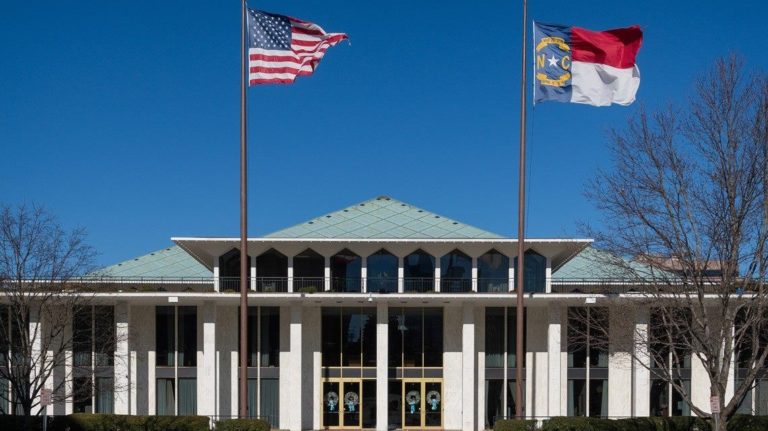
This weekend, political conservatives are gathering in Wilmington, NC, for the 2017 NCGOP State Convention, where party members will consider a platform replete with references to the importance of private property rights. Ostensibly, the NCGOP believes it is the “fundamental role of Government to protect” the “God-given inherent rights,” to property and that “[p]rivate property should not be taken by eminent domain except for a direct public use and upon prompt payment of just compensation.” But recent actions by the Republican-controlled N.C. General Assembly speak louder than words. During the 2017 legislative session, the NCGOP has repeatedly sacrificed private property rights to protect the profits of polluters. Worse still, this ideological unmooring poses significant threats to the environment and public health in North Carolina.
For instance, this spring lawmakers targeted the property rights of North Carolinians living near industrial animal agriculture operations. The “Agriculture and Forestry Nuisance Remedies” bill (H467) attacked the rights of those homeowners to use their property free from unreasonable interference by their neighbors. The bill was a transparent attempt to shield from liability Murphy-Brown, a hog producing subsidiary of pork giant Smithfield Foods. Approximately 500 residents of Eastern North Carolina had filed nuisance suits against Murphy-Brown to remedy harm caused by the company’s practice of spraying untreated hog waste onto fields near the plaintiff’s homes. This antiquated waste management practice causes widespread negative impacts to human health and the environment. Plaintiffs, who suffer from those impacts, simply sought to assert their property rights and receive just compensation for their demonstrated injuries.
After Murphy-Brown unsuccessfully argued that compensation for these injuries wasn’t permitted under North Carolina law, bill sponsors set out to change the law defining the applicable property rights. Even the conservative John Locke Foundation decried “overturning an ancient principle of Anglo-American common law that has, for more than 400 years, protected property owners’ right to the quiet enjoyment of their property.” Notwithstanding, H467 passed with exclusively Republican support in the Senate and mostly along party lines in the House. Thankfully, Governor Cooper vetoed the bill, noting that “[s]pecial protection for one industry opens the door to weakening our nuisance laws in other areas.” However, Republican supermajorities in both chambers overrode the veto and callously stripped away property rights from North Carolinians to protect a company that raked in record-setting profits in 2016. Sadly, because of the industry’s concentration in low wealth communities of color, this action exacerbated the already disparate racial impact of industrial hog production. But that action did not complete the NCGOP’s retreat from its supposed ideological principles regarding private property.
This week, Republicans introduced an amendment to H56 that would expand the use of eminent domain for private gain by non-governmental actors. The amendment paves the way for private out-of-state companies to use eminent domain to take land from unwilling North Carolinians for the construction of natural gas pipelines. This is a transparent attempt to benefit known polluters behind the proposed Atlantic Coast Pipeline (ACP), a project that poses significant threats to natural resources along its route from West Virginia to North Carolina.
The NCGOP’s willingness to allow private use of eminent domain to enable construction of the ACP is particularly notable given bipartisan support in the House earlier this session for a proposed constitutional amendment stating “Private property shall not be taken by eminent domain except for a public use.” After all, the ACP would be privately owned and operated. Moreover, existing natural gas supply is sufficient to meet projected demand until 2030, calling into question any theorized public benefit of the project.
Waterkeeper Alliance will continue to work with our partners to oppose legislative attempts to prioritize polluters over people. Perhaps our task in North Carolina would be easier if the NCGOP, despite ignoring the party’s commitment to property rights, considered that its proposed platform also states, “We are stewards of our God-given natural heritage. We have a duty to protect the earth’s resources.”